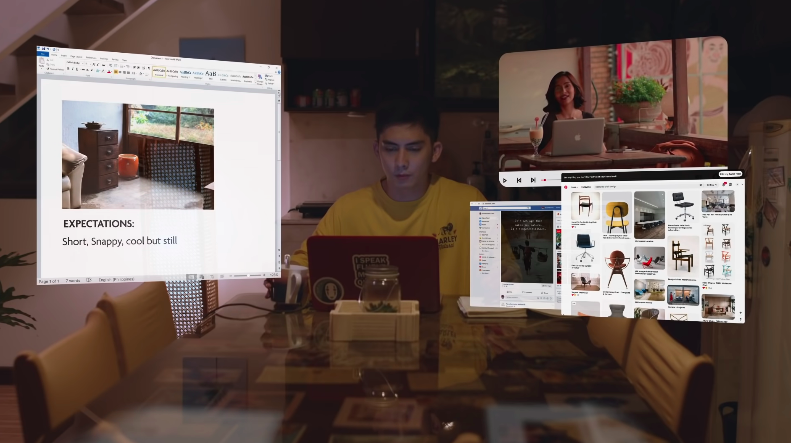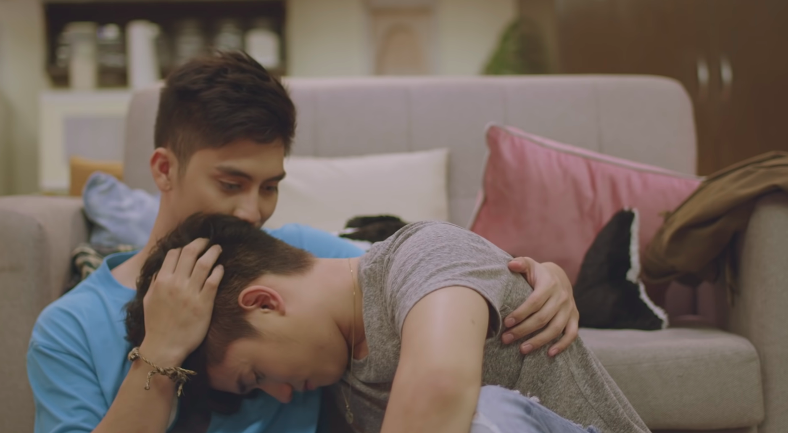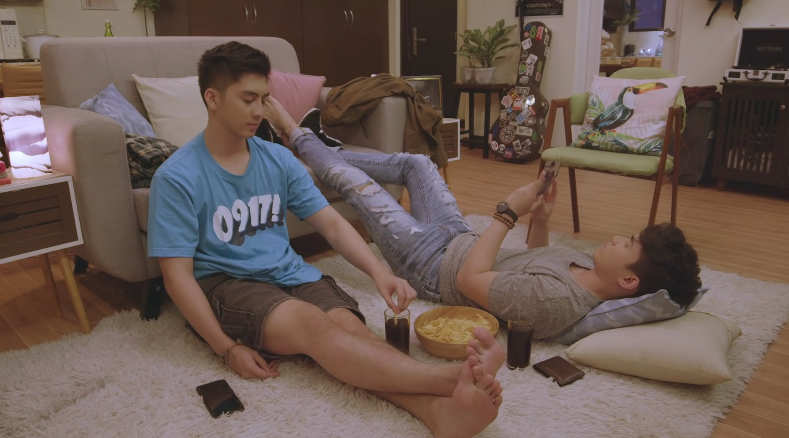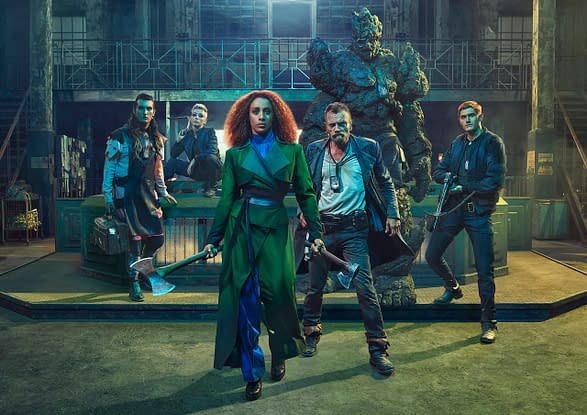I want to have a story I can call my own. But I want to be in charge of the ending too
Like in the Movies
The Phillipines is fast establishing itself as a powerhouse of BL. Following on from the excellent Gameboys, Pinoy television has now delivered the equally-good Like in the Movies (Gaya Sa Pelikula) And with only two episodes of the season left to go, it’s shaping up to be an intelligent, well-written and relatable script about seizing control of your own life.
A sparse production with few characters and even fewer sets, Like in the Movies is obviously another victim of filming restrictions due to Covid19. And yet the show’s filming limitations don’t detract from it. Nothing feels missing.

The Plot
In a semester break in his architecture degree, Karl (Paolo Pangilinan) is living in his Uncle’s house as part of a somewhat dogmatic sink-or-swim philosophy of his family’s. It’s a family tradition that he must prove he can live alone.
Karl is paying his way through this enforced independence by taking odd jobs as a ghostwriter. But like many people in the modern deregulated economy he finds it hard to get enough money together. Karl is increasingly worried he’ll fail his parents by failing to take care of himself.
Karl also has a secret – he doesn’t want to be an architect but instead wants to make films.
After his neighbour, the film student Vladimir (Ian Pangilinan), runs into his apartment one day to escape being dragged home by his supposedly homophobic mother, the two come to a deal. Vlad will cover Karl’s rent and teach him about film if Karl pretends to be his boyfriend. In this Vlad is helped by his sister and exuberant gay ally, Judit; determined to prove her rainbow credentials and already approving of her brother’s apparent new relationship with the shy, neat Karl.

Vlad is comfortably and openly gay and Karl is clearly attracted to him from the start. But, despite a gay Uncle, Karl’s self-image of the perfect Filipino son doesn’t include a boyfriend. As Karl and Vlad fall in love, the question is asked: will Karl have the courage to take control of his own narrative and be the lead in his own story?
A ghost in the closet
There’s a lot to like about Like in the Movies right from the first scene, especially around its gleeful embrace of romcom tropes such as fake relationship, forced cohabitation and Odd Couple conflict. Karl is neat, tidy, disciplined and avoids conflict. Vlad is messy, artistic, entitled and difficult. The two sharing the same space leads to the usual clashes as well as the hefty doses of kilig that Filipino writers are famous for.
And yet the show’s self-aware title hints at deeper waters.

At one point Karl and Vlad watch the award-winning Mexican road trip film, Y tu mamá también, and discuss the film’s meaning and the embedded symbolism.
If you want to make files, Vlad tells Karl, you need to see and understand the show’s use of signs and metaphors. But also, he notes, film is art not science. It’s just as important what a film means to you.
As well as a being a prompt for the audience to DON’T THINK, FIL! (to quote the Korean drama Thirty But Seventeen), it’s also a quiet allusion to the show’s symbolism. Nothing in Like in the Movies is random, no scene exists just to exist. Everything has meaning.
When their neighbour, Anna, drops by during a blackout to tell a ghost story about a dead body in a closet, Karl is drawn to his own closet where there is a photo of a young boy with Karl written on the back. The symbolism seems obvious here – Karl is in the closet – but the ghost allusion suggests there’s more to this story.
Karl himself is a ghost child, a ghost writer, a supporting player in his own life. A spectre walking around the world in someone else’s clothing. The question becomes whether he has the courage to manifest himself on the world. Can he be brave enough to live in the world as his own person, to take control of his own story? To be the lead in his own film.

“Do you ever feel like you’re not the protagonist of your own story? Like you’re just a supporting character? And whoever plays that role, it doesn’t matter. The film will still be the same. Because the script has been written and it just so happened that you’re the only one available to take that part. But it’s not yours.”
Karl
Don’t forget the kilig
This is not to say that Like in the Movies can’t be seen as just a simple love story. It has enough doses of romantic frisson between cute boys sharing a living space for the viewer who just wants their kilig. And the first six episodes were nicely bookended in a way that made some people feel the show had finished (don’t panic, there’s two episodes to go!).
Intelligent, well-written but also a fun love story chock full of romcom tropes, Like in the Movies is definitely worth watching. If it suffers from anything, it’s some cut rate production values that means it’s more cheap and cheery than flash and polished. But to me that just adds to the show’s charm



One thought on “The Protagonist of Your Own Story: Like in the Movies Review”